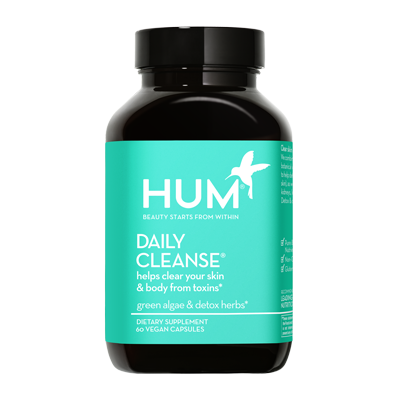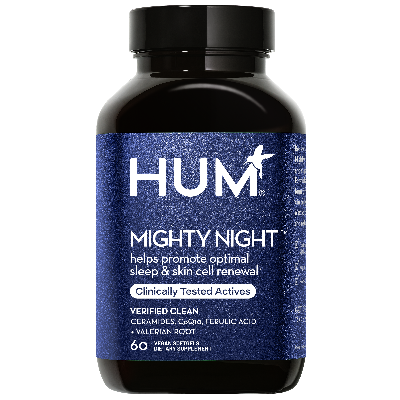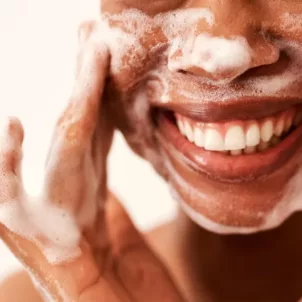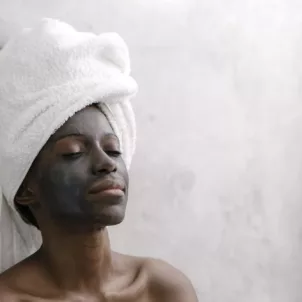Struggle with excess oil, breakouts, or skin sensitivity? Derms list the top pore-clogging ingredients worth nixing in your routine.
If you’ve ever used a new skincare product only to wake up with a fresh breakout the next morning, then you, my friend, have first-hand experience with pore-clogging ingredients. The trouble with finding formulas that won’t make your face freak out is that it’s not exactly a universal experience. That’s because some people can fully tolerate many ingredients, whereas those with oily, acne-prone, and/or sensitive skin are more reactive to certain formulas. That’s why dermatologists recommend looking for non-comedogenic products (aka those that won’t clog your pores) as a general rule of thumb for folks living with the aforementioned skin types.
Of course, if you’re not well versed in ingredient deep dives, you may not know where to start—or rather, what to avoid—when it comes to pore-clogging ingredients. To help you out, we consulted a few dermatologists to uncover the most common culprits behind clogged pores. Ahead, learn what causes clogged pores and uncover 10 pore-clogging ingredients to steer clear of to help prevent a congested complexion.
What Causes Clogged Pores?
Pores can become clogged naturally and by way of skincare routines. According to Kseniya Kobets, MD, the director of cosmetic dermatology at Montefiore Einstein in Westchester, New York, clogged pores are naturally caused by a build-up of:
- dead skin cells
- sebum (the skin’s natural oil)
- dirt
She points out that what you put on your skin (and how you wash it off) also plays a role. “Clogged pores can be further exacerbated by internal hormones and an inflammatory diet,” she adds.
The cause of clogged pores can also depend on your age. “For young people, it’s usually due to occlusion—meaning stuff that clogs the pores,” says Sarv Zand, MD, a board-certified dermatologist based in Mill Valley, California. “Then later in life—I would say in our 40s and beyond—our skin cells turn over less frequently, and so the dead skin layer on the surface becomes thicker and that causes the pores to become less efficient at emptying.”
In addition, part of why products and build-up get trapped is due to impaired follicular development. “For people who struggle with acne, follicular development no longer remains straight and smooth,” Dr. Zand explains, noting that when pores become kinked, debris more easily gets trapped, which leads to clogged pores and breakouts.
What Happens When Pores Get Clogged?
When pores get clogged—no matter how it happens—bacteria and yeast can begin to fester beneath the surface. When this happens, whiteheads, blackheads, papules, and pustules can rise to the surface, says Jeremy Brauer, MD, a New York-based board-certified dermatologist, dermatologic surgeon, and founder of Spectrum Skin and Laser.
“A very clogged pore may turn into a nodule or cyst and can cause irritation, swelling, and may be painful to the touch,” he adds.
10 Pore-Clogging Ingredients to Avoid
Since clogged pores can become unsightly, uncomfortable, and even painful, it’s best to prevent them at all costs. If you have oily, acne-prone skin, you can get ahead of the game by nixing the following pore-clogging ingredients from your skincare routine.
1. Algae
Algae is rich in omega-3 fatty acids, which makes it an intensely hydrating ingredient for normal and dry skin. Yet according to Dr. Brauer, algae—which is high in iodides—can irritate the pore and cause inflammation for oily, acne-prone, and sensitive skin types. “Algae extracts can enter the pore and lead to micro-comedones,” he explains.
2. Chemical Sunscreens
It’s essential that everyone, regardless of their skin type, wears sunscreen each and every day, rain or shine. That said, if you have oily, acne-prone, or sensitive skin, Brauer suggests prioritizing physical sunscreens over chemical ones. “To avoid breakouts, look for sunscreens with zinc oxide and titanium dioxide, which are non-comedogenic and non-irritating,” he says.
3. Coconut Oil
Coconut oil is often found in sunscreens and moisturizers thanks to its hydrating properties. However, according to Drs. Kobets and Brauer, it’s known to be a pore-clogging ingredient. “All types of coconut oil (extra virgin, fractionated, etc.) can block hair follicles and clog pores,” Dr. Brauer explains. “This is a highly comedogenic ingredient, [as] it’s a thick oil. The thicker the oil, the more difficult it is to be absorbed by your skin. It ends up sitting on top of your skin, creating a film layer.”
“Instead, use products to hydrate your skin with ceramides, glycerin, and hyaluronic acid,” Dr. Kobets advises.
4. Kelp
Like algae, kelp is high in iodine. According to Dr. Brauer, this makes it more likely to cause irritation, clogged pores, and acne breakouts.

5. Linolate/Lanolin
Lanolin is a popular moisturizing, skin barrier-supporting ingredient. “It helps prevent transepidermal moisture loss, which is what makes it a moisturizing agent. However, it contains a lot of fat and is thicker than human sebum, so it can seriously clog pores,” Dr. Brauer warns.
6. Marula Oil
Marula oil is majorly hydrating, hence why it’s a popular ingredient in some of the most soothing serums. However, if you’re prone to excess oil and/or breakouts, Dr. Brauer says to avoid it at all costs. “Marula oil is high in oleic acid, making it incompatible for people with oily or acne-prone skin,” he says. Alternatively, he recommends rosehip oil or jojoba oil.
7. Octyl Palmitate
A derivative of palm oil, octyl palmitate is an emollient often found in creams and lotions. While tolerable by normal and dry skin, octyl palmitate is highly comedogenic, Dr. Brauer warns.
8. Petroleum
Petroleum is an age-old skincare staple thanks to products like Vaseline. More recently, the ingredient has seen a resurgence in popularity thanks to the viral slugging trend, in which it (or another occlusive) is applied as the last step in a skincare routine to seal everything in. “While occlusive ingredients like petroleum are great for locking in moisture in the skin, they can also lock in oils, dirt, and inflammation,” Dr. Kobets warns.
To avoid such a situation, she suggests stocking your skincare routine with ceramides if you have oily, acne-prone skin. “Recent evidence shows that acne-prone skin is deficient in ceramides and has a skin barrier dysfunction even if skin feels oily,” she shares. “Using products with ceramides to repair the skin barrier will balance out the skin and help control acne before prescription topicals are needed.”
Tip: Consider supplementing with HUM’s Mighty Night, which contains ceramides to retain moisture and improve skin texture as you catch your beauty sleep.
9. Shea Butter
Shea butter is a popular hydrating ingredient often found in body lotions and creams. But if you struggle with body acne, Dr. Kobets says to avoid it, as it’s a pore-clogging ingredient. Again, she recommends reaching for products rich in ceramides, glycerin, and hyaluronic acid to adequately hydrate your skin from head to toe without risking breakouts in the process.
10. Silica/Silicone
Silica is the main ingredient in silicone, and dimethicone is a silicone-based polymer. All of these ingredients are no-gos for oily, acne-prone skin. While these ingredients are admittedly great for moisturizing skin and creating a smoother-looking appearance, they’re occlusive, says Dr. Kobets.
The Takeaway
All things considered, the effects of the pore-clogging ingredients shared above can vary from one person to the next. While some may be comedogenic and irritating for oily, acne-prone, and sensitive skin types, they may be totally tolerable for normal and dry complexions.
“Generally speaking, the thicker a cream or ointment is, the more likely it is to be occlusive,” Dr. Zand says. With that in mind and when in doubt, she suggests paying attention to a product’s texture for a quick indication of how it could affect your skin.












